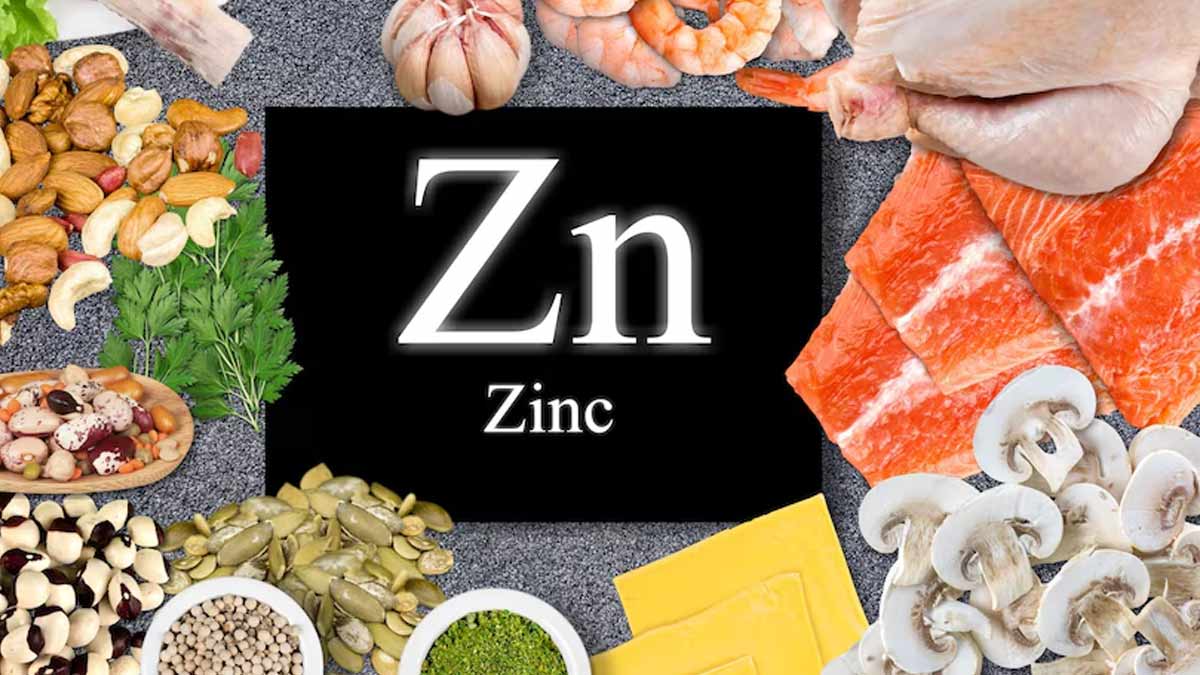
As women enter their 30s, it is essential for them to maintain their health and consume a highly nutritious and balanced diet. Iron and calcium are emphasised when it comes to nutrient consumption in women. Iron for haemoglobin and healthy flow of blood and calcium for bone health but zinc consumption is seldom talked about. One of the most underrated nutrients, zinc, plays a vital role in various bodily functions for women in their 30s.
Table of Content:-
A study published by National Institute of Health states, “Zinc is an essential microelement that plays many important functions in the body. It is crucial for the regulation of cell growth, hormone release, immunological response and reproduction.” The study also says that zinc is vital for the reproductive health of women.
To know more about the importance of zinc consumption and women’s health, OnlyMyHealth interacted with Dr Sonam Simpatwar, Consultant Gynecologist, Dr Babasaheb Ambedkar Memorial Hospital, Mumbai.
As per Dr Simpatwar, zinc plays an important role in maintaining optima; health throughout a woman’s life adding that its importance increases during 30s. Let’s understand how zinc contributes to women’s health.
Importance Of Zinc For Women
This essential mineral contributes to a wide range of physiological processes.
Immune function

“Zinc supports the immune system as it helps in repelling infections and illness,” Dr Simpatwar said. Women in their 30s are loaded with responsibilities. They juggle with careers, family responsibilities and kids if any. This can lead to stress, fatigue, weakness leading to weakened immune systems. Zinc becomes vital here to maintain their immune system.
Hormonal balance
As per Dr Simpatwar, zinc plays an important role in regulating the secretion of progesterone. Progesterone is a hormone which is essential for managing premenstrual syndrome (PMS) and also helps in preventing cramps. “Zinc consumption can significantly improve the quality of life for women who experience PMS symptoms.”
Also read: Zinc And Healthy Gut: Here Are 5 Foods You Must Include In Your Diet

Reproductive health
Women who are planning a pregnancy are advisable to consume zinc by the doctor. “Zinc supports healthy foetal development and reduces the risk of pregnancy complications like low weight birth, premature birth, and congenital abnormalities,” Dr Simpatwar said. As per a study conducted by ScienceDirect, nearly 82% women across the world experience zinc deficiency. This highlights the importance of adequate zinc intake during pregnancy. Another study observed that zinc consumption can have positive effects on women with PCOS, endometriosis and even dysmenorrhea.
Skin Health

Ageing is one of the common problems women face as they enter their 30s. Dr Simpatwar said that zinc contributes to the skin cell renewal and also helps in boosting collagen production, promoting healthy and radiant skin.
Mood Regulation
Citing research, Dr Simptawar said that zinc helps in regulating moods and can also help in alleviating the symptoms of anxiety and depression.
Zinc Deficiency
According to Dr Simpatwar, zinc deficiency is rare although it can have significant effects which include hair loss, diarrhoea, delayed wound healing, and decreased immunity. Women in their 30s who are pregnant, vegetarian, or have certain health conditions are at an increased risk of deficiency,” she said.

Also read: 6 Zinc Rich Food Items To Add In Your Diet
When asked about what foods women can consume to elevate their zinc levels, Dr Simpatwar said, “Incorporating zinc-rich foods into your diet can easily prevent deficiency and ensure optimal health. Excellent sources of zinc include, Pumpkin seeds, lentils, chickpeas, beans, nuts, and whole grains for vegetarians and beef, pork, turkey breast, and seafood like oysters, crab, and shrimp, for women who consume non-vegetarian food.
Adding further, Dr Simpatwar said, “For women who struggle to meet their daily zinc requirements through diet alone, supplementation may be considered. However, it is crucial to consult with a healthcare professional before starting any new supplements.”
Also watch this video
Read Next
Did You Know Irregular Or Absent Periods Can Indicate High Prolactin Levels? Here’s What It Is
How we keep this article up to date:
We work with experts and keep a close eye on the latest in health and wellness. Whenever there is a new research or helpful information, we update our articles with accurate and useful advice.
Current Version